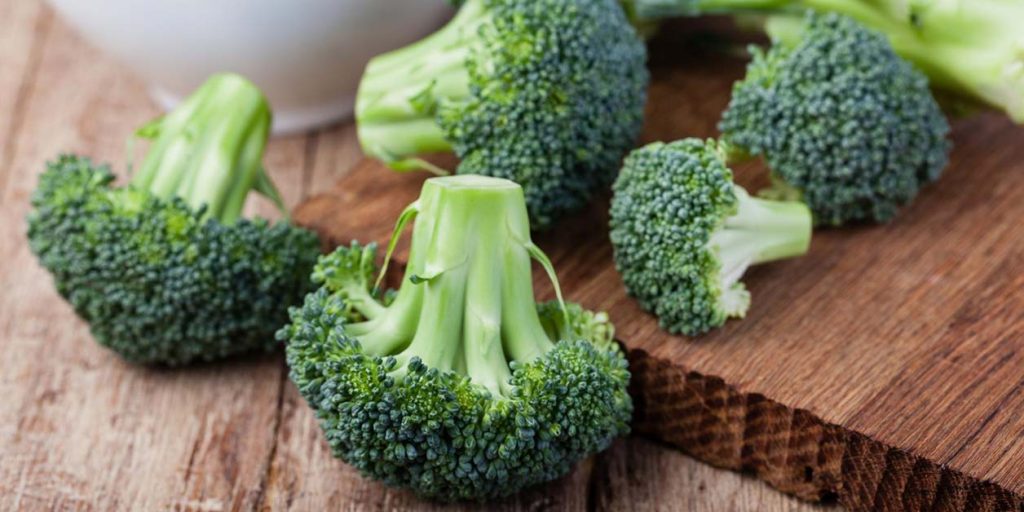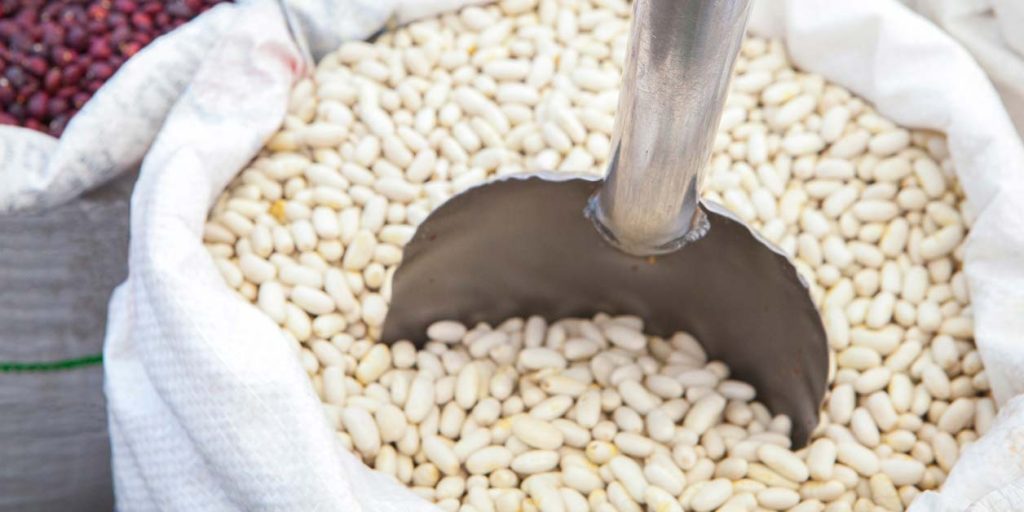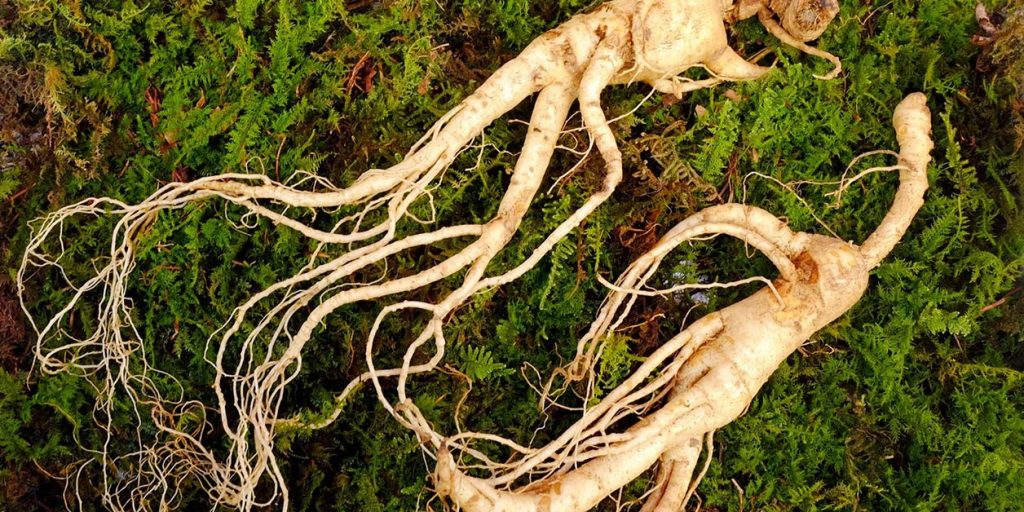Are you struggling to stay focused and productive in today’s hectic world? Do you find yourself easily distracted and lacking concentration? Look no further – Lion’s Mane Mushroom may be the natural solution you’ve been searching for. Discover how this powerful mushroom can improve your cognitive function and enhance your daily life.
What Is Lion’s Mane Mushroom?
Lion’s Mane Mushroom, also known as Hericium erinaceus, is a unique medicinal fungus that is renowned for its distinctive appearance and potential health benefits. This mushroom is native to North America, Europe, and Asia and has been utilized in traditional medicine for centuries. Characterized by its long, shaggy white tendrils resembling a lion’s mane, Lion’s Mane Mushroom is rich in bioactive compounds such as polysaccharides and hericenones, which are believed to have neuroprotective properties and may promote brain health. Moreover, research has shown that Lion’s Mane Mushroom may have the potential to improve cognitive function, enhance focus, and boost memory.
How Does Lion’s Mane Mushroom Improve Focus and Concentration?
Lion’s Mane Mushroom has been shown to enhance focus and concentration by impacting the brain and nervous system. Here are the ways it achieves this:
- Promotes Nerve Growth: Lion’s Mane stimulates the production of nerve growth factor (NGF), which helps with the growth and maintenance of brain cells.
- Reduces Inflammation: Its anti-inflammatory properties protect brain cells from damage and improve cognitive function.
- Enhances Neurotransmitter Function: Lion’s Mane helps increase the production of acetylcholine, a crucial neurotransmitter for memory and learning.
- Improves Mood: By reducing symptoms of anxiety and depression, Lion’s Mane promotes mental clarity and concentration.
- Supports Neuroplasticity: Neuroplasticity is the brain’s ability to form new neural connections. Lion’s Mane enhances this process, improving learning and focus.
Incorporating Lion’s Mane Mushroom into your routine may naturally improve focus and concentration. Consider adding it to your diet through supplements or incorporating it into your meals. Remember to consult with a healthcare professional before making any dietary changes.
What Are The Active Compounds In Lion’s Mane Mushroom?
Lion’s Mane mushroom is known for its cognitive benefits, thanks to the presence of several active compounds. These compounds include hericenones and erinacines, which have been found to have neuroprotective and neuroregenerative properties. By stimulating the production of nerve growth factor (NGF) in the brain, these compounds promote the growth and repair of nerve cells.
Additionally, Lion’s Mane contains antioxidants, polysaccharides, and beta-glucans, which can help reduce inflammation and support a healthy immune system. You can easily incorporate Lion’s Mane into your diet through supplements, tea or coffee, or powdered extracts. However, as with any supplement, it’s important to be aware of potential allergic reactions, gastrointestinal distress, and interactions with medications.
How Do These Compounds Affect The Brain?
The compounds found in Lion’s Mane Mushroom have various effects on the brain, such as:
- Boosting the production of Nerve Growth Factor (NGF), which helps with the growth and repair of nerve cells.
- Increasing levels of brain-derived neurotrophic factor (BDNF), a protein that supports the survival and growth of neurons.
- Reducing inflammation in the brain, which can lead to improved cognitive function.
- Protecting against oxidative stress, preventing damage to brain cells.
- Enhancing communication between brain cells, ultimately improving overall brain function.
What Are The Other Benefits Of Lion’s Mane Mushroom?
While lion’s mane mushroom is known for its ability to improve focus and concentration, its benefits extend far beyond just cognitive enhancement. In this section, we will dive into the other remarkable benefits of this medicinal mushroom. From supporting nerve growth and repair to boosting the immune system and reducing inflammation, lion’s mane mushroom offers a wide range of potential benefits for overall health and wellness.
1. Supports Nerve Growth And Repair
Supporting nerve growth and repair is one of the key benefits of incorporating Lion’s Mane mushroom into your diet. Here are a few ways to do so:
- Supplements: Take Lion’s Mane mushroom in the form of capsules or tablets, following the recommended dosage.
- Tea or Coffee: Brew Lion’s Mane mushroom powder or extract in hot water to make a soothing beverage.
- Powder or Extract: Add Lion’s Mane mushroom powder or extract to your smoothies, soups, or recipes for an added boost.
2. Boosts Immune System
Lion’s Mane mushroom is renowned for its ability to enhance the immune system and offer numerous health benefits. To incorporate this powerful mushroom into your diet and boost your immune function, follow these simple steps:
- Supplements: Take Lion’s Mane mushroom extract or capsules as a daily supplement to boost your immune system.
- Tea or Coffee: Brew Lion’s Mane mushroom tea or add mushroom powder to your coffee for a delicious and immune-boosting beverage.
- Powder or Extract: Incorporate Lion’s Mane mushroom powder or extract into your favorite recipes, such as smoothies, soups, or stir-fries, to maximize its immune-boosting properties.
By following these steps, you can effortlessly include Lion’s Mane mushroom in your diet and reap the benefits of its immune-boosting effects.
3. Reduces Inflammation
Lion’s Mane mushroom is renowned for its potential to decrease inflammation within the body. Here are some ways to easily incorporate it into your daily routine:
- Supplements: Take Lion’s Mane mushroom in capsule or tablet form for a convenient and effective way to reduce inflammation.
- Tea or Coffee: Brew a warm cup of Lion’s Mane mushroom tea or add Lion’s Mane mushroom extract to your coffee for a soothing and anti-inflammatory beverage.
- Powder or Extract: Add Lion’s Mane mushroom powder or extract to your smoothies, soups, or sauces for a flavorful and inflammation-reducing boost.
For centuries, Lion’s Mane mushroom has been utilized in traditional Asian medicine for its numerous health benefits, including its ability to reduce inflammation. Its unique appearance, resembling a lion’s mane, has earned it its name and its reputation as a potent natural remedy.
How To Incorporate Lion’s Mane Mushroom Into Your Diet?
Are you looking for a natural way to improve your focus and concentration? Look no further than lion’s mane mushroom, a powerful adaptogen known for its cognitive-boosting properties. But how can you incorporate this superfood into your diet? In this section, we’ll discuss three easy and effective ways to include lion’s mane mushroom in your daily routine: through supplements, tea or coffee, and powder or extract form. Get ready to enhance your mental clarity and productivity with this incredible fungus.
1. Supplements
Lion’s Mane Mushroom supplements are a popular way to incorporate this powerful fungus into your daily routine. They are available in various forms, including capsules, powders, and tinctures. These supplements offer a convenient and consistent dosage of Lion’s Mane Mushroom extract, making it easy to reap the cognitive and health benefits.
When choosing a supplement, be sure to select from reputable brands that use high-quality ingredients and have positive customer reviews. It is important to follow the recommended dosage instructions and consult with a healthcare professional before starting any new supplement regimen.
Fun fact: Lion’s Mane Mushroom is also known as “Hericium erinaceus” in the scientific world.
2. Tea or Coffee
Lion’s Mane mushroom can easily be integrated into your daily routine by adding it to your tea or coffee. Whether you choose to brew a cup of Lion’s Mane mushroom tea or add some extract to your coffee, you can reap numerous cognitive benefits. The active compounds found in Lion’s Mane mushroom, such as hericenones and erinacines, promote the production of nerve growth factor (NGF) in the brain, leading to improved focus and concentration. Additionally, Lion’s Mane mushroom has other advantages, including supporting nerve growth and repair, boosting the immune system, and reducing inflammation. To enjoy these benefits, consider incorporating Lion’s Mane mushroom supplements, tea, or powder into your diet.
Here’s a true story: Sarah, a student struggling with focus and concentration, began adding Lion’s Mane mushroom tea to her daily routine. Within a few weeks, she noticed a significant improvement in her ability to stay focused during study sessions. Now, Sarah enjoys the benefits of Lion’s Mane mushroom while sipping on her favorite cup of tea.
3. Powder or Extract
When adding Lion’s Mane Mushroom to your diet, there are multiple options to choose from, including powder or extract forms. To incorporate Lion’s Mane Mushroom as a powder or extract, follow these steps:
- Measure the recommended dosage of Lion’s Mane Mushroom powder or extract.
- Add the powder or extract to your preferred beverages or recipes.
- Mix well to evenly distribute the powder or extract.
- Consume the mixture as part of your daily routine.
- Monitor the effects on your focus and concentration over time.
By following these steps, you can easily add Lion’s Mane Mushroom powder or extract to your diet and potentially experience its benefits for focus and concentration.
Are There Any Side Effects Of Taking Lion’s Mane Mushroom?
While lion’s mane mushroom has been touted for its ability to naturally enhance focus and concentration, it’s important to also consider any potential side effects. In this section, we will discuss the possible allergic reactions that may occur when taking lion’s mane mushroom, as well as the potential for gastrointestinal distress. Additionally, we will explore any interactions that may arise when combining lion’s mane mushroom with certain medications. By understanding these potential side effects, you can make an informed decision on whether lion’s mane mushroom is the right supplement for you.
1. Allergic Reactions
Allergic reactions to Lion’s Mane mushroom are rare but possible. If you are considering incorporating Lion’s Mane mushroom into your diet, here are some steps to take to minimize the risk of allergic reactions:
- Consult a healthcare professional: Discuss your intentions with a healthcare professional, especially if you have a history of allergies or are taking any medications.
- Start with small amounts: Begin with a small dose of Lion’s Mane mushroom and monitor your body’s response for any signs of allergic reactions.
- Observe symptoms: Pay attention to any symptoms such as itching, hives, swelling, or difficulty breathing.
- Discontinue use: If you experience any allergic reactions, stop consuming Lion’s Mane mushroom immediately and seek medical advice.
- Consider alternatives: If you are allergic to Lion’s Mane mushroom, explore other natural options for improving focus and concentration.
2. Gastrointestinal Distress
Gastrointestinal distress is a potential side effect of consuming Lion’s Mane Mushroom. If you experience any discomfort, there are steps you can take to alleviate it:
- Begin with a low dosage and gradually increase it to allow your body to adjust.
- Consume Lion’s Mane Mushroom with food to minimize any potential irritation.
- Make sure to use a high-quality supplement from a reputable brand.
- If the symptoms persist or worsen, consult with a healthcare professional.
Overall, Lion’s Mane Mushroom is generally well-tolerated, but it’s important to pay attention to your body and make any necessary changes.
3. Interactions With Medications
- Consult with your healthcare provider: Before incorporating Lion’s Mane Mushroom into your diet, it’s important to discuss any potential interactions with your current medications with your doctor or pharmacist.
- Inform about current medications: Make a list of all the medications you are currently taking and share it with your healthcare provider to ensure safe incorporation of Lion’s Mane Mushroom.
- Discuss potential interactions: Your healthcare provider can assess if there are any possible interactions between your medications and Lion’s Mane Mushroom and provide guidance on managing them.
- Consider dosage adjustments: In some cases, your healthcare provider may need to adjust the dosage of your medications to account for any potential interactions with Lion’s Mane Mushroom.
Pro-tip: It’s always better to be safe than sorry when it comes to potential interactions between medications and supplements. Consulting with your healthcare provider will ensure that you make informed decisions about incorporating Lion’s Mane Mushroom into your routine.
References
References are crucial when composing an article or conducting research. They add credibility to your work and permit readers to investigate the sources of information used. Including references also demonstrates that you have thoroughly gathered accurate and dependable information.
When citing references, it is important to adhere to the specific guidelines of the chosen citation style, such as APA or MLA. This guarantees consistency and facilitates the accessibility of the original sources for readers and researchers. By providing references, you contribute to the integrity and transparency of your work.
Frequently Asked Questions
What is Lion’s Mane Mushroom and how does it help boost focus and concentration naturally?
Lion’s Mane Mushroom is an edible medicinal mushroom that has been used in traditional Chinese medicine for centuries. It contains compounds that stimulate the production of nerve growth factor, promoting the growth and repair of nerve cells in the brain, ultimately leading to improved focus and concentration.
How do I consume Lion’s Mane Mushroom for maximum benefit?
Lion’s Mane Mushroom can be consumed in various forms, such as capsules, powder, or as part of your regular diet. It is recommended to consult with a healthcare professional to determine the best method and dosage for your specific needs.
Are there any potential side effects of consuming Lion’s Mane Mushroom?
Lion’s Mane Mushroom is generally safe for consumption, however, some people may experience mild side effects such as stomach discomfort, nausea, or diarrhea. If you experience any adverse reactions, it is recommended to discontinue use and consult with a healthcare professional.
Can Lion’s Mane Mushroom be used by children and pregnant/breastfeeding women?
While Lion’s Mane Mushroom is considered safe for consumption, it is always advisable to consult with a healthcare professional before giving it to children or using it during pregnancy or while breastfeeding.
How soon can I expect to see results from consuming Lion’s Mane Mushroom?
The timeline for experiencing the benefits of Lion’s Mane Mushroom may vary from person to person. Some may see results within a few days, while others may take a couple of weeks. It is important to remember that consistency is key, and it may take some time before noticeable improvements in focus and concentration are observed.
Are there any other benefits of consuming Lion’s Mane Mushroom besides improved focus and concentration?
Yes, Lion’s Mane Mushroom has been studied for its potential benefits in improving memory, reducing inflammation, and boosting the immune system. It is also rich in antioxidants and may have anti-cancer properties. However, more research is needed to confirm these potential benefits.







